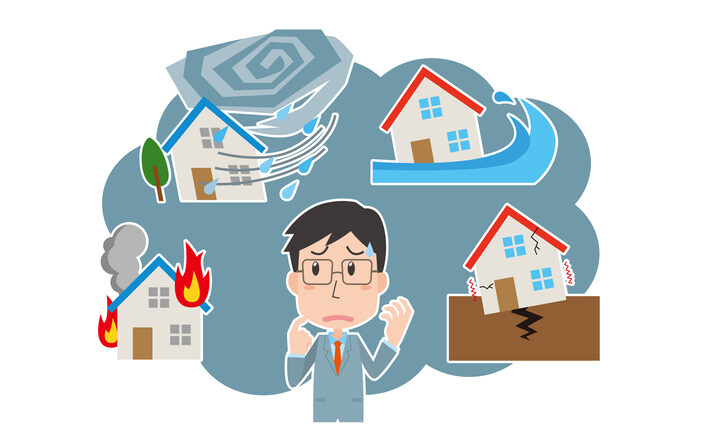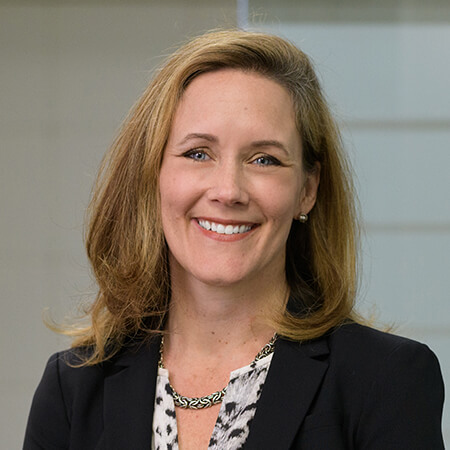Family governance is not a document you complete once and file away. It is a living system that grows and adapts just as the family

Risky Business
July 18, 2023
Despite the growing list of issues that seem to separate California and Florida these days, there is one area that they have very much in common… severe and widespread natural disasters, and especially the adverse financial impact that these events are having on the availability of homeowners insurance. From extreme wildfires in California to hurricanes in Florida, to tornadoes in Texas and similar perils in other states, this is all causing insurance companies to simultaneously contend with costly risks on multiple fronts. In California, the recent decision by State Farm to stop writing new home insurance policies is just the latest—and so far, most striking—example of this growing problem. Allstate did this same thing last year, and other high-end insurers—like Chubb and AIG—have also significantly cut back on underwriting in recent years and not renewed coverage for many.
Big natural disasters cause lots of destruction all at once, which leads to imbalances in the supply and demand for rebuilding services; and this is happening on top of already inflated material prices due to pandemic-related supply chain constraints as well as overall higher general inflation. This is making it increasingly difficult for insurance companies to adequately price the risks that they are taking on. Plus, due to existing regulations in California, insurance companies doing business there are not allowed to pass along the cost of reinsurance (effectively insurance for insurance companies) which they use to offload some of their inherent liability and help minimize the impact of possibly getting hit with huge costs all at once. And reinsurance costs have climbed significantly nationwide (especially in disaster-prone states like fire-ravaged California and storm-battered Florida and Texas), so this is squeezing insurance companies and influencing their underwriting decisions.
In turn, this is all putting an increased burden on the Cal FAIR Plan in the Golden State, which is the insurance of “last resort” for homeowners who are unable to get other normal, private coverage. Moreover, the FAIR Plan is primarily funded by charges collected from insurance companies currently doing business in the state, so as the Plan grows in usage—and if it should get wiped out by a series of catastrophes—this will put potential further burden on those companies that stay in the state (in proportion to their share of the market); hence this is probably also part of what is causing some companies to simply stop doing business here. And this situation is not unique to California; a similar type of “last resort” pseudo-public plan in Florida (that has swelled in size in recent years) is receiving support from that state in preparation for the coming hurricane season.
This overall situation is particularly difficult for anyone with a mortgage on their house, or the intention to buy a house with such debt—which is very common—because mortgage companies typically require homeowner insurance to be in place to get, or keep, a loan. And if someone cannot find HO insurance, or loses it, then they will probably not be able to secure a mortgage. So, this is apt to have wider ripple effects on real estate values and other related considerations.
There are no easy answers to this evolving predicament. Insurance companies—and their regulators—need to fairly and adequately manage the increased costs that come with this risky new world in which widespread disasters can literally destroy tens of thousands of homes all at once. And should insurance companies be able to keep profitable business in the state—in supposedly safer areas—but cancel many other policies elsewhere? One could argue that the insurance industry may require utility-like regulation as it relates to potential universal coverage. Maybe something more like the California Earthquake Authority is needed for fire risk, with some type of similar public instrumentality—whether something new or an extended FAIR Plan—overseeing most fire coverage in the state. Whatever the eventual solution, homeowners are voters too and it will all surely get very political… if it hasn’t already.
Articles and Commentary
Information provided in written articles are for informational purposes only and should not be considered investment advice. There is a risk of loss from investments in securities, including the risk of loss of principal. The information contained herein reflects Sand Hill Global Advisors' (“SHGA”) views as of the date of publication. Such views are subject to change at any time without notice due to changes in market or economic conditions and may not necessarily come to pass. SHGA does not provide tax or legal advice. To the extent that any material herein concerns tax or legal matters, such information is not intended to be solely relied upon nor used for the purpose of making tax and/or legal decisions without first seeking independent advice from a tax and/or legal professional. SHGA has obtained the information provided herein from various third party sources believed to be reliable but such information is not guaranteed. Certain links in this site connect to other websites maintained by third parties over whom SHGA has no control. SHGA makes no representations as to the accuracy or any other aspect of information contained in other Web Sites. Any forward looking statements or forecasts are based on assumptions and actual results are expected to vary from any such statements or forecasts. No reliance should be placed on any such statements or forecasts when making any investment decision. SHGA is not responsible for the consequences of any decisions or actions taken as a result of information provided in this presentation and does not warrant or guarantee the accuracy or completeness of this information. No part of this material may be (i) copied, photocopied, or duplicated in any form, by any means, or (ii) redistributed without the prior written consent of SHGA.
Video Presentations
All video presentations discuss certain investment products and/or securities and are being provided for informational purposes only, and should not be considered, and is not, investment, financial planning, tax or legal advice; nor is it a recommendation to buy or sell any securities. Investing in securities involves varying degrees of risk, and there can be no assurance that any specific investment will be profitable or suitable for a particular client’s financial situation or risk tolerance. Past performance is not a guarantee of future returns. Individual performance results will vary. The opinions expressed in the video reflect Sand Hill Global Advisor’s (“SHGA”) or Brenda Vingiello’s (as applicable) views as of the date of the video. Such views are subject to change at any point without notice. Any comments, opinions, or recommendations made by any host or other guest not affiliated with SHGA in this video do not necessarily reflect the views of SHGA, and non-SHGA persons appearing in this video do not fall under the supervisory purview of SHGA. You should not treat any opinion expressed by SHGA or Ms. Vingiello as a specific inducement to make a particular investment or follow a particular strategy, but only as an expression of general opinion. Nothing presented herein is or is intended to constitute investment advice, and no investment decision should be made based solely on any information provided on this video. There is a risk of loss from an investment in securities, including the risk of loss of principal. Neither SHGA nor Ms. Vingiello guarantees any specific outcome or profit. Any forward-looking statements or forecasts contained in the video are based on assumptions and actual results may vary from any such statements or forecasts. SHGA or one of its employees may have a position in the securities discussed and may purchase or sell such securities from time to time. Some of the information in this video has been obtained from third party sources. While SHGA believes such third-party information is reliable, SHGA does not guarantee its accuracy, timeliness or completeness. SHGA encourages you to consult with a professional financial advisor prior to making any investment decision.
Other Posts By This Author
- – Admitting that Non-Admitted Insurance Is Here to Stay
- – Exchange Ideas
- – College Bound — Hip, HIPAA, Hooray
- – Fiscal Sponsorship for Charity
Related Posts







